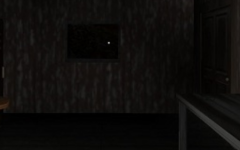Advertisement
Manivore
Advertisement

Manivore is a psychological horror game that begins with an investigation and descends into a disturbing mystery. The player assumes the role of a forensic analyst assigned to a string of disappearances that seem unrelated—until the evidence begins to connect. What appears to be a standard criminal case quickly becomes something much darker, as the clues point toward an intelligent predator who treats murder as an art form. As the story unfolds, the player is pulled into the twisted world of a killer who leaves behind no traces, only carefully constructed scenes.
Photography and Evidence Analysis
The main tool throughout Manivore is a camera used to uncover hidden details at crime scenes. Certain objects, symbols, and markings are invisible without the camera’s lens, forcing players to rely on its viewfinder to track down vital clues. Every location holds layers of information, and only through photographs can the full picture emerge. The camera also reveals movement and audio distortions that hint at the presence of something watching. Capturing images at the right moment can mean the difference between solving a puzzle and falling into a trap.
Key gameplay systems include:
- Forensic photography for hidden evidence
- Environmental puzzles based on object placement and memory
- Realistic lighting and sound cues for exploration
- Psychological tension through ambient design
- A narrative focused on manipulation and fear
Puzzles and Environmental Storytelling
Manivore builds its tension through visuals and through complex environmental puzzles. Players must piece together timelines, examine room layouts, and interact with evidence in precise sequences. Each crime scene is crafted with hidden meaning and layered symbolism, requiring close observation and logical thinking. Dialogue, scattered notes, and unusual patterns in the surroundings all contribute to the larger mystery. The narrative rewards those who explore thoroughly and think critically about each piece of evidence encountered.
Atmosphere, Sound, and Themes
With high-detail environments and immersive sound design, the game creates a setting that feels oppressive and isolating. Footsteps echo unnaturally, whispers bleed into ambient noise, and faint mechanical clicks hint at unseen watchers. Manivore explores themes of control, loss of identity, and the human mind’s capacity for detachment. Some scenes include disturbing imagery and acts of violence, adding emotional weight and psychological discomfort. These elements are not used for shock alone, but to reinforce the game’s central idea: horror rooted in precision, not chaos.
Psychological Impact and Player Role
The deeper the player goes into the story, the more personal the case becomes. The killer seems aware of the player’s actions, tailoring clues and traps specifically to them. This blurs the boundary between investigator and target, raising questions about who is truly in control. Manivore does not offer comfort or safety but instead asks players to examine horror through a lens of understanding and confrontation. Each decision carries weight, and by the end, survival depends on how well the player has understood the mind behind the crime.






















































































































































